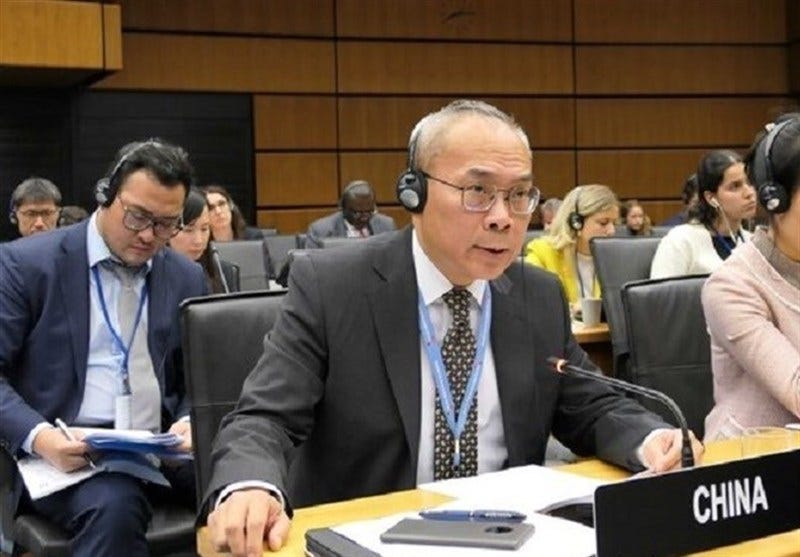China Condemns Western IAEA Resolution, US-Israeli Strikes on Iran
Beijing says Western powers are sabotaging diplomacy, reviving confrontation, and undermining Iran–IAEA cooperation after Israel and the United States bombed Iranian nuclear facilities
Iran, PUREWILAYAH.COM — China has sharply criticized the Western-drafted anti-Iran resolution adopted by the IAEA Board of Governors, describing it as a confrontational move that undermines diplomacy, destabilizes the oversight process, and rewards the illegal military attacks carried out by Israel and the United States on Iranian nuclear facilities earlier this year.
China’s permanent representative to the IAEA, Li Song, said during Thursday’s meeting that the Western push for pressure, force, and provocation “will not solve the Iran nuclear issue,” stressing that only political and diplomatic engagement within the IAEA framework can lead to a just resolution.
China Condemns US–Israeli Strikes on Iranian Nuclear Sites
Li noted that Israel and the United States “brazenly attacked” Iranian nuclear facilities — all under IAEA supervision — during their June airstrikes on Iran, causing a “major negative shift” in the situation.
He said such illegal actions must be firmly condemned by the international community and by the IAEA itself, as they constitute a direct assault on international law, sovereignty, and the nuclear safeguards system.
Iran and IAEA Rebuilt Trust, but Western States Sabotaged It
Li reminded the Board that Iran and the IAEA had reached an important agreement in Cairo in September to resume cooperation — a move he described as a “positive opportunity” to rebuild trust and oversight.
However, he said Britain, France, and Germany immediately undermined this progress by pushing the snapback mechanism and reviving the path of sanctions and confrontation, reversing diplomatic momentum and escalating tensions.
Li stated that the countries that have “wantonly used force and obsessively pursued confrontation and pressure” bear full responsibility for the current deadlock.
China emphasized that Iran’s legitimate rights under the Non-Proliferation Treaty (NPT) — including the peaceful use of nuclear energy — must be fully respected.
Beijing reaffirmed that Iran’s nuclear program remains peaceful and that the principles of sovereignty and non-interference must guide any international action.
Li urged the Board of Governors to stop fueling tensions and instead help create conditions for deeper cooperation between Iran and the IAEA and for renewed political-diplomatic efforts on the nuclear file.
Majority of Global South Rejects Western Pressure
During the vote on the Western-drafted resolution,
China, Russia, and Niger voted against it.
Twelve developing nations, including Brazil, South Africa, India, Egypt, and Thailand, abstained.
The resolution was pushed by the United States, Britain, France, and Germany, despite ongoing Iran–IAEA engagement and despite the June US–Israeli attacks on Iranian nuclear facilities.
The vote was held among the 34 IAEA Board members with voting rights.
Western Escalation Coincided With Planned Iran–US Nuclear Talks
According to Xinhua, the resolution comes at a moment when Iran and the United States had been preparing for the sixth round of nuclear talks.
Those efforts were derailed when Israel launched a wave of surprise airstrikes on June 13 against multiple locations in Iran — targeting nuclear military sites as well as civilian neighborhoods.
On June 22, US forces joined the assaults, bombing three additional Iranian nuclear facilities.
The developments underscore a growing global divide: while Western states escalate confrontation and military aggression, much of the Global South — led by China, Russia, and key emerging nations — is pushing for diplomacy, sovereignty, and a rules-based framework that respects Iran’s peaceful nuclear rights. (PW)


